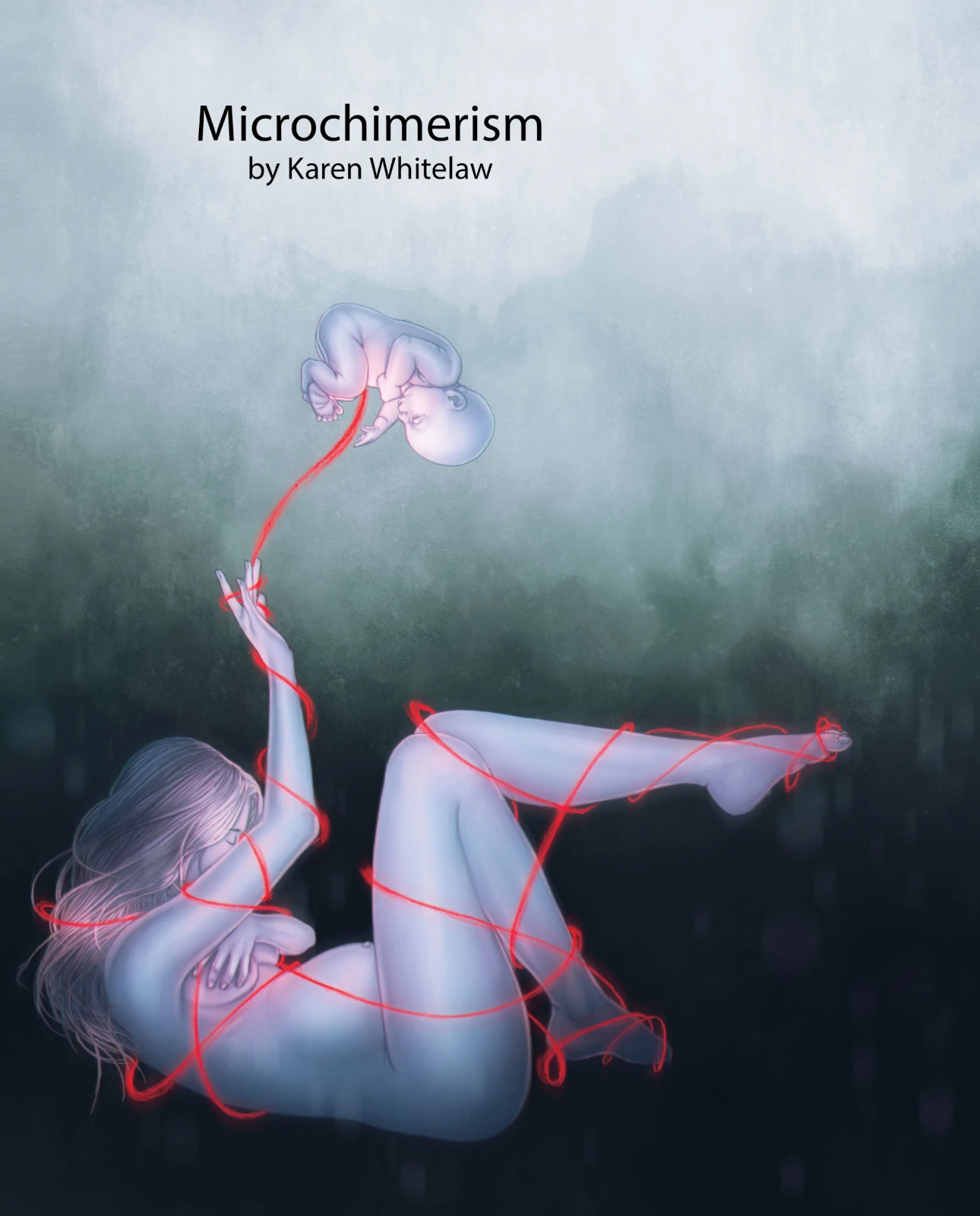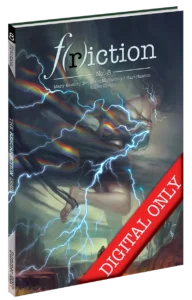
Microchimerism
Words By Karen Whitelaw, Art By Enrica Angiolini
Microchimerism: the presence in the host body of a small number of distinct genetic cells that originated from another.
Mel only knows pain. She’s forgotten the astringent shock of antiseptic that earlier made her feel like vomiting. Gone is the sterile white room without windows, the hard metal bed, more suited to a cell or a torture chamber, and the bizarre steel instruments glinting in the hard light. There’s only her body writhing, her head thrashing from side to side, the tendons in her legs straining into tight cords against leather stirrups—between which she feels the gush of an expulsion. She births the pain.
The nurse holds out her arms, but the doctor skirts around her and places the baby on Mel’s new breasts: warm skin slimy with vernix and blood against warm skin slippery with sweat.
She hears the nurse hiss, “You’re making it harder for her,” and looks down at the doctor’s head crowning between her legs. He has a small bald patch, pink and vulnerable. He glances at her over her still-rounded stomach. “Only three stitches.” He smiles, but his eyes droop at the outer edges. She nods once and closes her own so he can’t see them fill.
She wonders how the pain can go so quickly. Her mind flits over her body—starting at her feet in the stirrups and moving up her bare legs, white as a plucked chicken’s. She feels the tug of the doctor’s stitches, but no pain. Her chest is warm with the soft weight of the baby, except where something hard and round jabs into the flesh of her breast. She opens her eyes. A knee. It was a knee.
The baby’s tiny hand flexes, latching onto her index finger. She shakes her wrist, but the baby clings—tight as the leeches at camp.
After a drunken fumble during schoolies week, past graduation, in the backseat of a car with someone whose name she can’t remember—if she ever knew it at all—and the baby had been latched onto her ever since. And here it is still, hanging on by its perfect miniature fingers and tiny, rounded fingernails no bigger than water drops—as if it already suspects abandonment.
There’s a clatter as the nurse drops a metal instrument into a dish. The baby jerks violently, releasing Mel’s finger. She hears it whimper and, cupping a stiff hand around the baby’s back, pats it like a dog that might nip. She notices red indents on either side of its tiny head. Its eyes are swollen closed and its mouth is agape like her brother’s goldfish. She jiggles it gently.
The doctor releases her legs from the stirrups, blood flow returning with a suddenness that reminds Mel of when her water broke. Her legs feel as if they’ve been running a long time and have only now, finally, stopped.
Her baby’s palm opens and Mel slips a finger inside it. The rest of her hand curls around the little fist. Mel’s chest surges with a feeling so heavy she can hardly breathe.
“All done here,” says the doctor, nodding.
The nurse moves to the head of the bed. She wipes her palms on her hips before bending to take the baby. As if by instinct, Mel grabs the nurse’s wrist. She has latched on tightly—for her life. She does not let go.
